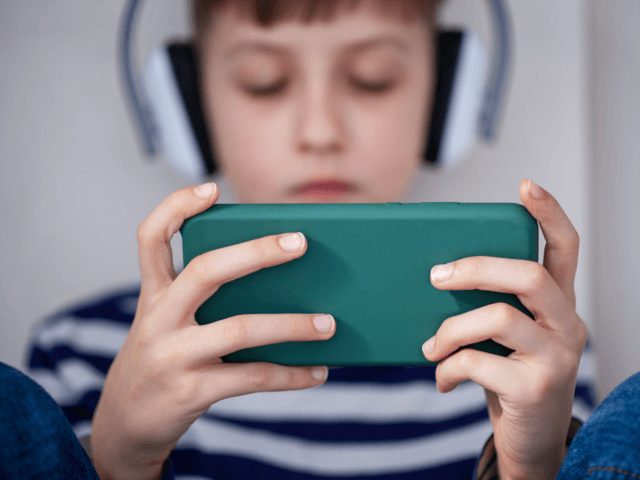A poll has found that the average child in Britain spends more than four hours staring at screens daily compared to just forty minutes outside.
A survey conducted for Hoya Vision by the OnePoll agency found the amount of time children spend on their phones or tablets has increased during the lockdowns, with 93 per cent of parents reporting that screen time has increased for their children during the pandemic.
In total, the average child spends over four and a half hours every day on their electrical devices, while spending just forty minutes outside, according to the poll.
The survey went on to say that the average six to 16-year-old spends more than two hours more per day inside than they did prior to the Chinese coronavirus.
The poll, which questioned 1,500 parents, found that seven in ten wish to get their children outside more but over six in ten struggled to convince them to get off their screens and get outside. Over two-thirds of parents reported that they feel their child is “addicted to screens”.
Hoya Vision noted that the increased time spent glued to screens could have negative impacts on the eye health of children, such as myopia or short-sightedness.
Commenting on the results of the poll, Professor Kathryn Saunders of Ulster University said: “Researchers have proven a clear relationship between being short-sighted and spending less time outdoors in childhood.”
“The outdoors is an environment which has been shown to delay the onset of short-sightedness, and by getting children outside, it will remove them from being in front of the addictive screens that parents are so concerned about.”
The survey comes amid a wider concern over the impacts that lockdowns have had on youngsters in Britain, with the NHS reporting that one in six children in England suffered from a “probable mental disorder” in 2021, compared to one in nine in 2017.
Girls between the ages of 11 and 16-years-old faced the most impact on their mental health during the lockdowns, however, both sexes saw eating disorders double compared to 2017.
The government healthcare provider went on to report that thirteen per cent of youngsters of the same age felt their lives were “much worse” than before the lockdowns, with 24 per cent of those aged between 17 and 23 reporting the same.
There have been longstanding concerns about the impacts of lockdowns on the mental health of children. For example, a report from February of last year found that the number of pre-teens committing self-harm had doubled in six years.
In June, mental health specialists also warned that young children were suffering from “locked-in trauma”, making it difficult to build friendships and even experience anxiety when playing with other children.
Follow Kurt Zindulka on Twitter here @KurtZindulka

COMMENTS
Please let us know if you're having issues with commenting.